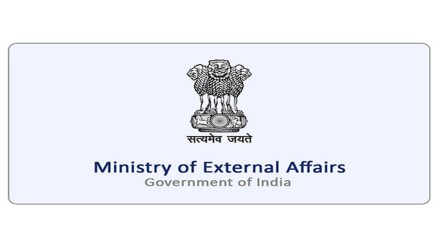By Pavan Soni
Given a choice between failing with a plan or succeeding without a plan, what would you choose? If you ask start-ups, they will rather succeed without a plan, for who wants one in this VUCA (volatility, uncertainty, complexity, and ambiguity) world? But mature organisations are willing to be crushed under the weight of their well-thought-out plans instead of improvising. Too much planning can be debilitating, but its absence is not exactly liberating — it’s mostly confusing, as now you can’t distinguish between effort and serendipity. And hope, as the say, isn’t a good strategy. So how exactly should corporate leaders strategise, striking a balance between long-term impact and short-term correction? Maybe the answer lies with the ministry of external affairs (MEA). Here are three lessons on strategic planning.
Stance of strategic ambiguity
An unsaid rule in strategy is: “The only thing worse than a wrong decision is no decision.” You may choose to not choose, and that’s a legitimate choice. But the corporates, who are mostly measured by their last quarter’s results, tend to rush into decision-making. Inventors love a decisive leader, especially who takes bold decisions and appears clear. There’s hardly any room for sticking to the golden mean, for straddling between competing choices is considered meek. But should that be the case, especially in these times of flux?
India has always maintained a position of neutrality, initially out of being cornered and now out of audacity. Our stance of being the Third World (originally meant for non-aligned countries, not underdeveloped countries) was put to test in the wake of Russia’s attack on Ukraine. By early 2022, India was warming its relationship with the US and its ties with Russia weren’t questionable. It was a choice between an old ally and a new friend, between reliability and acceleration, between orthodoxy and a modern outlook. India’s choice of not reprimanding Russia and yet not severing its ties with Ukraine and the western bloc was an act of deftness. This “strategic ambiguity”, initially criticised, got vindicated when the Ukraine invasion spilled into its third year. By being aligned with both hemispheres, India famously created its Third Axis.
The world powers are now aligned with India’s decision of maintaining biliteral ties with any nation it deems suitable. That’s the redemption of strategic ambiguity — you keep your choices open amid uncertainty.
The leverage of soft power
Although China has become second only to the US in terms of patent and scientific publications produced by its universities, it hasn’t become a magnet for students. It’s because China lacks soft power, a cultural pull. Becoming a superpower isn’t just about economics, it’s equally social and cultural. India, with its strengthening economic heft, remains an endearing soft power. This 5,000-year-old civilisation retains enough of its elements, from cuisine to music and arts, to charm the world and bring negotiators to the table. Indians in the tech space, political arena, and the world of science, literature, and arts only adds to the image of a “loved”, not “feared”, nation.
Corporate leaders can work toward being thought leaders on specific causes, thereby expanding their influence beyond stock market optics. For instance, Anand Mahindra has created his own pull beyond the might of his namesake organisation, or Kiran Mazumdar-Shaw punches above the weight of Biocon. This requires deliberate efforts, careful narratives, and consistent causes. Then you are beyond the mercy of your firm’s quarterly performance.
The virtue of signalling
As Chekhov’s Law states: “If a gun is seen in the first act, it should be used by the third act.” The same stands for strategy. A strategy is only as good as its operationalisation. If you can’t pull a strategy, you better not have it in the first place. Often, to please the investors or unsettle competitors, corporate leaders make bold statements. Luckily, such statements are mostly forgotten over time, but the leader’s reputation gets eroded. With each successive statement, people discount you, and you merely remain a mouthpiece. A good strategy must be backed with execution and legitimate signalling.
Right from the Kuwait Airlift of 1990, where over 175,000 people were rescued from war-torn Kuwait, to Operation Devi Shakti in 2021, when thousands were transported safely out of a falling Afghanistan, India has a rich history of strategic missions. With over 50 peacekeeping missions involving close to 290,000 troops, it remains the largest contributor to UN peacekeeping efforts. Although voluntary, they offer two vital benefits. Firstly, these are signalling mechanisms hinting at India’s military prowess and war readiness. Secondly, they help Indian forces get acquainted with harsh and varied conditions, making them battle-hardened. This aligns with India’s values of non-violence and the principle of “Vasudhaiva Kutumbakam” (the world is one family).
Similarly, in corporate parlance, a leader must walk the talk. Nothing does greater good than backing a strategic commitment with deft execution, be it delivering a Rs 1-lakh car or being the world’s factory of vaccination. Think of how motivated an employee is when a promise is delivered through her. India’s internal stability and external pride reflects strategic choices and disciplined execution. A lot could be learned from MEA. I hope leaders are keeping a close watch and making their share of contribution.
The writer is an author and faculty member at IIM Bangalore.
Disclaimer: Views expressed are personal and do not reflect the official position or policy of FinancialExpress.com. Reproducing this content without permission is prohibited.
